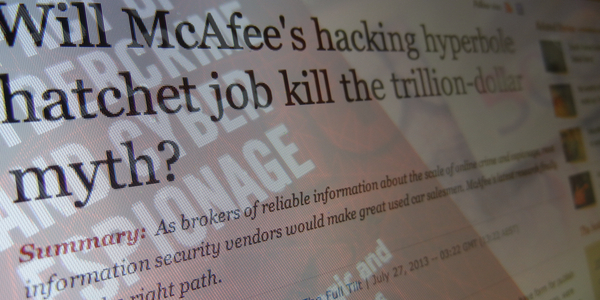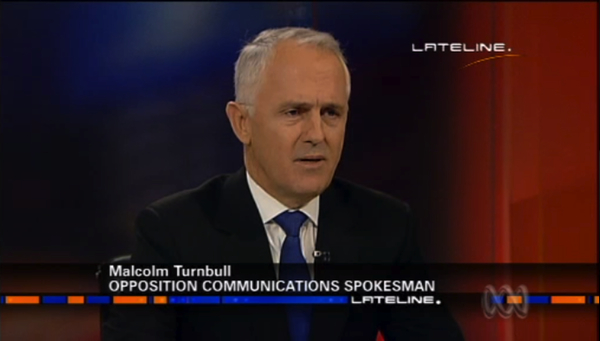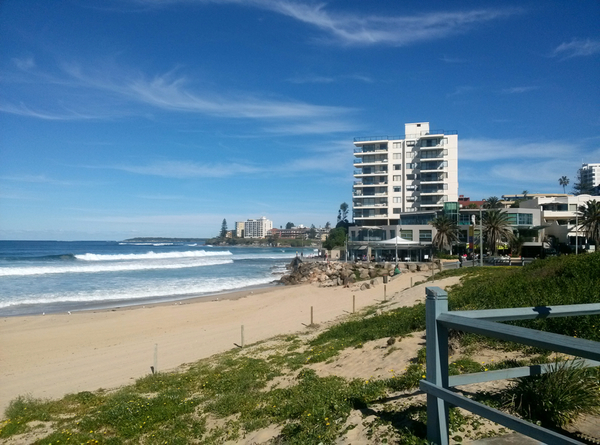Australia’s treasurer Joe Hockey exudes love and understanding. We take the train to Cronulla to find out exactly what makes this southern Sydney suburb so great. And there are shellfish, damn fine shellfish.
Continue reading “The 9pm Shire”Do McAfee’s new cyberstats really represent a shift?
 As brokers of reliable information about the scale of online crime and espionage, most information security vendors would make great used car salesmen — but McAfee’s latest research finally seems to be taking the right path.
As brokers of reliable information about the scale of online crime and espionage, most information security vendors would make great used car salesmen — but McAfee’s latest research finally seems to be taking the right path.
In my column at ZDNet Australia this week, I give McAfee some praise for the most recent research they’ve funded, a preliminary report from the Washington-based Center for Strategic and International Studies titled The Economic Impact of Cybercrime and Cyber Espionage that dismantles the daft idea that cyberstuff costs the global economy a trillion dollars a year.
McAfee now admits that you can’t run a small-N survey in a couple dozen large, wealthy nations — often a self-selected sample of known crime victims at that — and extrapolate the data globally.
Their new figure is “probably measured in the hundreds of billions of dollars”, although they never quite commit to one specific number…
“In the context of a $70 trillion global economy, these losses are small, but that does not mean it is not in the national interest to try to reduce the loss, and the theft of sensitive military technology creates damage whose full cost is not easily quantifiable in monetary terms,” McAfee writes.
True, but as McAfee themselves point out, this supposed cybercrime explosion is really down at the level of shoplifting. Retailers generally budget between 0.5% and 2% for pilferage and other such “shrinkage”.
I also mention my previous critical comments about various infosec vendors’ dodgy statistics — but I don’t link to them, because they were mostly published at non-CBS mastheads. So here’s a selection of stories I’ve written on this subject over the last couple of years.
Continue reading “Do McAfee’s new cyberstats really represent a shift?”
Malcolm Turnbull and the NBN: This one’s for you, Sir!
 This post is written for an audience of one. The Honorable Malcolm Turnbull MP, Member for Wentworth and Shadow Minister for Communications and Broadband. But all you proles are welcome to read it too.
This post is written for an audience of one. The Honorable Malcolm Turnbull MP, Member for Wentworth and Shadow Minister for Communications and Broadband. But all you proles are welcome to read it too.
Since I last spoke with Turnbull eighteen months ago for the Patch Monday podcast, his comments on Australia’s National Broadband Network (NBN) have frustrated me to hell. I’m guessing he’s not thrilled with what I’ve written since then either — because most of it has been critical of his comments, or even straight-up mockery.
- Some of that ol’ NBN religion, ZDNet Australia, 31 January 2013, in which I called the Coalition’s broadband policy “empty political rhetoric” and noted that Turnbull’s call for an end to “quasi-religious debate” applied to him too.
- Turnbull overstating the uncommercial NBN case … mostly, Crikey, 9 December 2011, in which certain spin was deconstructed.
- Turnbull’s NBN twilight zone — give the man a cigar (Cuban of course), Crikey, 11 October 2011, in which I called his words “fact-free rhetoric” and said this “annoy[ed] the shit out of me – especially when Turnbull has perfectly good rational and easy-to-explain criticisms that [Minister] Conroy can’t answer”.
- Turnbull’s curious high-bandwidth blind spot, ABC Drum Opinion, 18 August 2011, in which I analysed his Patch Monday comments with a distinct lack of flattery — the blind spot being him “not even seeing the existence of bandwidth-using applications”.
My frustration is fuelled by cognitive dissonance. I admire Turnbull’s sharp use of political rhetoric. Indeed, I’ve praised him for it many times. But recently so much of Turnbull’s use of this rhetoric has been to play the pathetic old party-political tribal games that dominate the political narrative and, quite frankly, turn people off.
Sure, propaganda must trigger biases and responses that the audience already holds. That’s Joseph Goebbel’s Principles of Propaganda 101. So, yes, here we go again. Cuba communism socialism Labor North Korea Kremlin secrecy Stalin pogrom Labor socialism bad bad bad. Yawn. Y-fucking-awn.
In my most recent piece, Some of that ol’ NBN religion, I wrote:
In a rational world, something as important as a political party’s policies for the nation’s broadband infrastructure would refer to objective facts and measures.
There’d be no talk of “super-fast broadband”, as if that were actually a unit of measurement. There’d be no lumping together of different technologies with widely different performance characteristics under this or any other generic label. We might not necessarily go into the fine details of bonded copper pairs or GPONs versus other kinds of optical fibre distribution, but we’d at least have the decency to talk about actual upload and download speeds, about theoretical maximum speeds versus those that are likely to be obtained in real life, and maybe even about capabilities.
We might even discuss the relationship between upload speeds and download speeds, and the ability for individuals and businesses to be creators and participants in the digital economy and culture, rather than merely consumers.
It said much the same sort of thing back in June 2011 when I wrote The only NBN monopoly seems to be on ignorance. Again, my frustration stemmed from the simple fact that both major political parties, not just Turnbull’s Coalition, seem intent on keeping us ignorant instead of properly explaining their different approaches to what is, as we’re continually told, Australia’s biggest infrastructure project ever.
Now as it happens, Turnbull is delivering a keynote address at Kickstart Forum, the annual get-together of many of Australia’s IT journalists and the vendors who pay to be there, on Tuesday morning. This looks like the perfect opportunity to present some facts to an audience that’s equipped to understand and interpret them for the voters.
I think I’ve only spoken with Turnbull twice. Once was the podcast, and that was over the phone. The other was in the flesh, maybe a year or two beforehand, at some event at the ABC’s headquarters in Ultimo, Sydney. But it was nothing more than a polite greeting as we were introduced.
Mr Turnbull, I very much look forward to meeting you again on Tuesday.
[Photo: Malcolm Turnbull as seen on ABC TV’s Lateline, 14 February 2013.]
Sea Shepherd whaling discussion kicks off
Needless to say, since I posted yesterday about the collision between Sea Shepherd’s Ady Gil and Japanese security ship Shonen Maru 2, the hard of thinking have confused me being anti-Sea Shepherd with being pro-whaling. Just to make it abundantly clear, I’ve written a long comment over on my original post.
[Update 11am: Simon Rumble has complained about me turning off comments on this post. Sorry, I should have said that comments are open over at my January 2008 post. I wanted to keep all the comments related to Sea Shepherd in one place.]
Sea Shepherd? Gave my opinion 2 years ago
Self-appointed whale-defender media whores Sea Shepherd always provide great photos of their “direct action”, so it’s no surprise that when their boat Ady Gil was damaged by Japanese security ship Shonan Maru 2 yesterday it looked spectacular.
Sea Shepherd of course claim it was a deliberate attack. Maybe it was, maybe it wasn’t. Thing is though, guys, if you don’t want to be involved in a collision at sea, don’t fucking well deliberately put your boat so close to another.
I won’t say any more about this specific incident today. I have other things to do, and I’ve already written about my opinion of Sea Shepherd two years ago — along with plenty of references to material which points out that things are all much murkier than Sea Shepherd makes out.
If you’d like to comment on this issue, do please do so after reading the material over at my original post. I’m very interested in separating out the emotion-laden rhetoric and the zealotry surrounding whaling from the practical environmental and legal issues, and I think Sea Shepherd are a noisy distraction.
So, I’ll close comments on this post, and you can comment over there.
As an aside, the life and beliefs of Sea Shepherd founder Paul Watson make for an interesting read too.
[Update 8 January 2010: To clarify, yes, comments are closed on this post — not to limit the discussion, but to ensure that all comments relating to Sea Shepherd are collected over on my January 2008 post. Sorry if there’s been any confusion.]
Links for 30 September 2009 through 13 October 2009
Stilgherrian’s links for 30 September 2009 through 13 October 2009, gathered automatically but then left to languish for two weeks before publication.
There’s so many of these links this time that I’ll publish them over the fold. I think I need to get over my fear of the link being published automatically without my checking them first, and my concern that my website won’t look nice if the first post is just a list of links.
Maybe I should just stick these Delicious-generated links in a sidebar? Or do you like having them in the main stream and RSS feed?
Continue reading “Links for 30 September 2009 through 13 October 2009”

